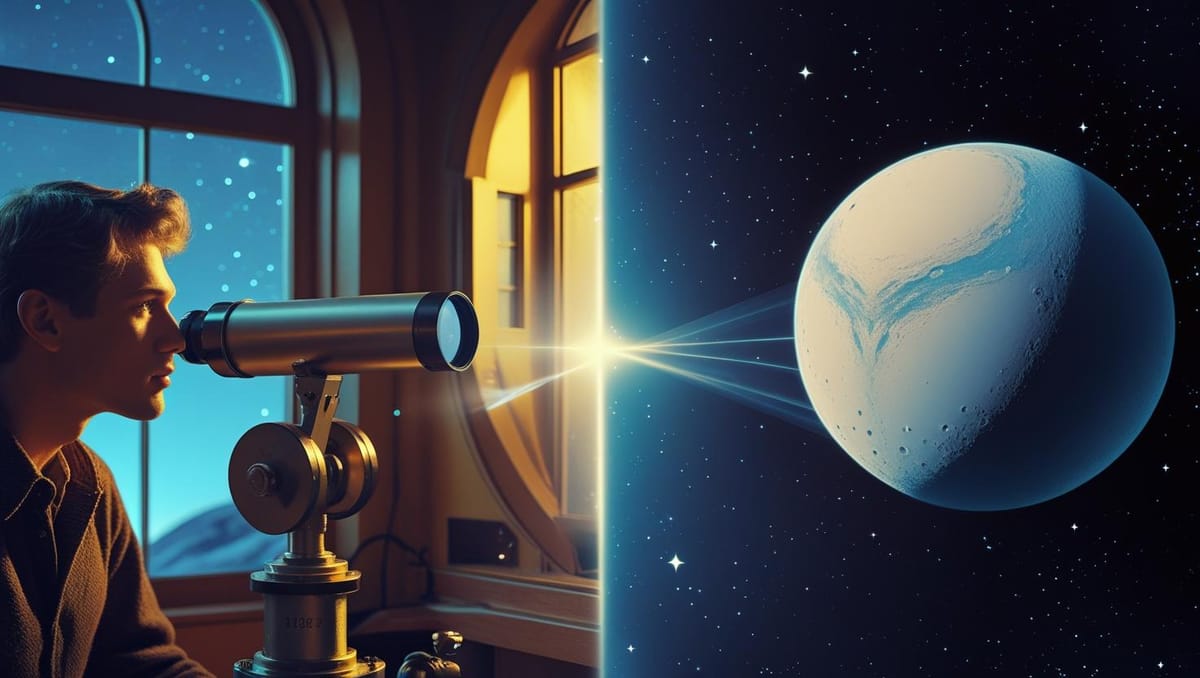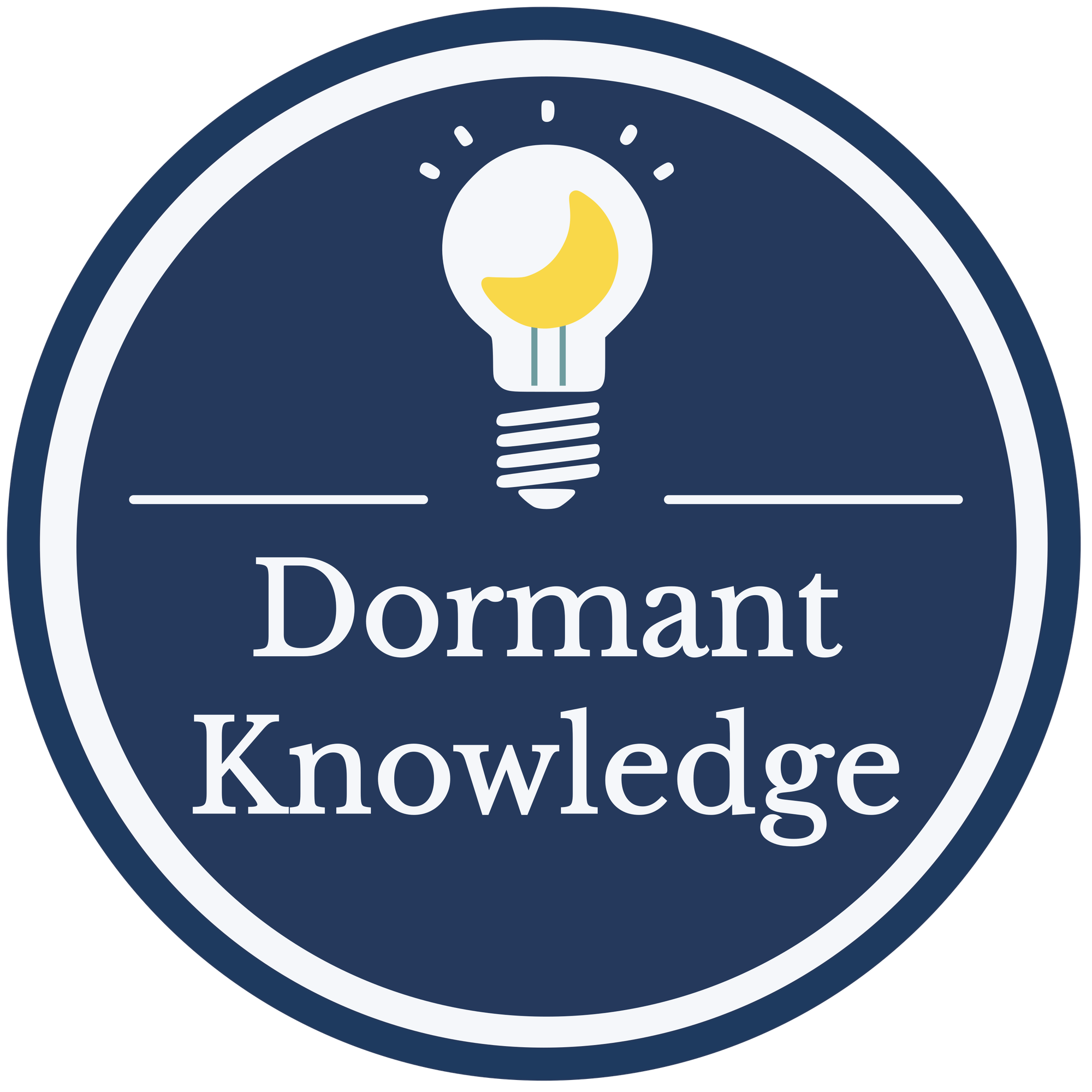Episode 2 Live: The Pluto Discovery That Started with a Farm Boy's Dream

It's here! Episode 2 of Dormant Knowledge is now live, and tonight you can drift off to sleep while learning about one of astronomy's most captivating discoveries. "The Last Planet: Pluto's Rise and Fall" takes us from the mathematical precision we explored with Newton and Leibniz to the outer reaches of our solar system, where a young man from Kansas found a world that would capture hearts for generations.
Also available on Apple Podcasts, Spotify, YouTube, and wherever you listen
From Mathematical Tools to Cosmic Discoveries
If you listened to Episode 1, you'll love how tonight's story connects to the calculus revolution. The same mathematical precision that emerged from the Newton-Leibniz rivalry made possible the gravitational calculations that led astronomers to predict "Planet X" lurking beyond Neptune.
Percival Lowell spent years using these mathematical tools to calculate where this mysterious world should be hiding. When he died in 1916 without finding it, his calculations lived on—eventually leading to one of the most remarkable discovery stories in astronomical history.
Tonight's Highlights: What You'll Discover
The Unlikely Hero: Meet Clyde Tombaugh, a 24-year-old from a Kansas farm who got his job at Lowell Observatory by mailing them drawings of planets he'd made with a homemade telescope. His patient, methodical approach—the same qualities that served him well in farm work—turned out to be exactly what was needed to find a world four billion miles away.
The Tedious Hunt: For 10 months, Tombaugh compared photographic plates using a "blink comparator," looking for a tiny dot that moved against the star field. He examined over 2 million stars before spotting the faint point of light that would change astronomy forever.
An 11-Year-Old's Bright Idea: Discover how Venetia Burney, a schoolgirl from Oxford, suggested the name "Pluto" over breakfast—and how her grandfather made sure the suggestion reached the astronomers who needed to name their new world.
The Heart That Won Hearts: Learn how NASA's 2015 New Horizons mission revealed that this distant world has a giant heart-shaped plain of nitrogen ice, reigniting public fascination with our former ninth planet.
The Great Demotion: Explore the 2006 controversy that reclassified Pluto as a "dwarf planet"—a decision so contentious that the state of Illinois officially declared Pluto would always be a planet there.
The Beauty of Unexpected Discoveries
Like Episode 1's story of calculus emerging from two brilliant minds working independently, Pluto's discovery reminds us that the most extraordinary breakthroughs often come from unexpected places. A farm boy with a passion for astronomy. A mathematical prediction that outlived its creator. A tiny world at the edge of everything we know.
These stories work perfectly for sleep-learning because they're fundamentally about human curiosity and determination—themes that resonate whether you're fully awake or drifting toward dreams. You don't need to memorize orbital mechanics or gravitational formulas. You just need to appreciate the wonder of discovery and the persistence it takes to find new worlds.
Perfect for Your Monday Night Wind-Down
Tonight's episode is designed to take you on a gentle journey from Earth to the outer solar system. You'll follow Tombaugh's patient search, feel the excitement of discovery, and contemplate the vast scales of space and time that put our daily concerns in cosmic perspective.
Pluto is so far away that when it was discovered in 1930, it still hasn't completed even half an orbit since then. It's a world where the Sun appears as just a bright star, where temperatures hover around -375°F, and where a day lasts about 6.4 Earth days. These cosmic scales have a naturally calming effect, perfect for minds ready to unwind.
How Knowledge Builds on Knowledge
One of the most satisfying aspects of both episodes so far is how they illustrate that revolutionary discoveries don't happen in isolation. Newton and Leibniz built on centuries of mathematical thinking. Tombaugh used tools and techniques developed by generations of astronomers before him. Each discovery opens doors to the next.
This is exactly the kind of perspective that works beautifully for sleep-learning. You're not cramming isolated facts—you're absorbing a larger understanding of how human knowledge progresses, how curiosity drives us to explore the unknown, and how the most unlikely people can make the most extraordinary contributions.
From Rise to Fall to Rise Again
What makes Pluto's story particularly compelling is how it continues to evolve. From its discovery as our ninth planet to its controversial demotion to "dwarf planet" status, Pluto has remained in the public imagination like no other celestial object. The 2015 New Horizons flyby, with its stunning images of an active, complex world, reminded us why this distant place captures our hearts.
Tonight's episode takes you through this entire journey—the triumph of discovery, the evolution of scientific understanding, and the ongoing debate about how we classify the objects in our cosmic neighborhood. It's a story that spans nearly a century and shows how science is always evolving as we learn more about our universe.
Your Sleep-Learning Journey Continues
Whether this is your first Dormant Knowledge episode or you're continuing from the calculus story, tonight offers the perfect opportunity to experience learning without pressure. Let Tombaugh's story of determination and discovery carry you gently toward sleep. Marvel at the vast distances and cosmic timescales that make our solar system so extraordinary. Drift off while contemplating how a young man's curiosity led to one of astronomy's greatest finds.
Remember: there's no test tomorrow. No pressure to remember every detail about orbital periods or atmospheric composition. Just curiosity, wonder, and the quiet satisfaction of learning something fascinating as your mind prepares for rest.
What's Next? You Tell Us
As we build this community of curious night owls, we want to hear from you. What topics fascinate you but you've never had time to properly explore? What kind of discovery stories capture your imagination? What subjects would you love to learn about while drifting off to sleep?
Share your suggestions:
- Email us at [email protected]
- Follow and message us @dormantknowledge on Instagram and Facebook
- Find us @drmnt_knowledge on X
- Leave a review on your favorite podcast platform with topic ideas
Some possibilities we're considering for future episodes:
- The invention of the light bulb (spoiler: it wasn't really Edison)
- Television video standards
Early Listener Feedback
The response to Episode 1 has been wonderful. We're hearing from people who've discovered that yes, you really can learn while relaxing. Some listeners report falling asleep during the mathematical explanations and waking up with a better understanding of how calculus developed. Others have made it through entire episodes and found themselves genuinely excited about topics they'd never explored before.
This is exactly what we hoped for—learning that happens naturally, without stress or pressure. Education that fits into busy lives and actually helps with the wind-down process rather than keeping you wired and alert.
Join the Conversation
Whether you're a longtime space enthusiast or someone who just enjoys good discovery stories, tonight's episode has something for you. Pluto's tale is ultimately about the very human desire to explore, to understand our place in the cosmos, and to keep asking "what's out there?"
As you settle in for tonight's episode, remember that you're part of a growing community of people who believe learning should be a joy, not a chore. Who think curiosity is one of humanity's best qualities. Who understand that sometimes the best way to absorb knowledge is to let it wash over you like a gentle tide.
Sweet dreams, and happy exploring.
Dormant Knowledge is available wherever you listen to podcasts. Follow us on social media for daily fascinating facts and behind-the-scenes content from your favorite educational sleep podcast.
Previous Episode: Episode 1: "The Great Calculus War" Coming Soon: Episode 3 on the invention of the light bulb!




